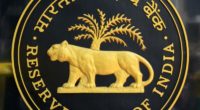The National Pension System (NPS) is a low-cost, voluntary method of investing for retirement that is regulated by the Pension Fund Regulatory and Development Authority (PFRDA) and the central government.
It tends to provide cover to employees in the public, private and unorganised sectors, but not the defence forces.
Generally, NPS offers two accounts: Tier-I and Tier-II.
Tier-I Account: This remains a non-withdrawable pension account. Withdrawals are allowed only in specific circumstances, which could be related to critical illness or children’s education or marriage, and upon retirement.
Tier-II Account: Being a voluntary savings account, it is possible for a subscriber to withdraw their savings from this account at their discretion. It is to be noted that tax benefits are primarily associated with the Tier-I account, however.
A choice to invest in different asset classes, such as government securities (G-Secs), corporate bonds, and equities, is available to subscribers. As per their risk appetite, it is possible to decide on asset allocation.
Considering that the scheme provides market-linked returns, there could be variations in the actual pension corpus that a subscriber may accumulate up to retirement age. Besides, the returns are also linked to the choice of investment scheme under NPS and the fund manager.
In the past 10 years, the average return from NPS, under the equity category, has been more than 13%. Similarly, the average returns in other scheme categories have also been above 9% in 10 years, as per the data on the official site of the NPS Trust.
A systematic withdrawal plan for NPS subscribers is on the anvil, as the pension fund regulator is set to introduce changes in rules, which are likely to be introduced by the end of next quarter. As per this, subscribers who have attained the age of 60 years would have the option to withdraw their accumulated corpus in a staggered manner.

Rajiv is an independent editorial consultant for the last decade. Prior to this, he worked as a full-time journalist associated with various prominent print media houses. In his spare time, he loves to paint on canvas.





